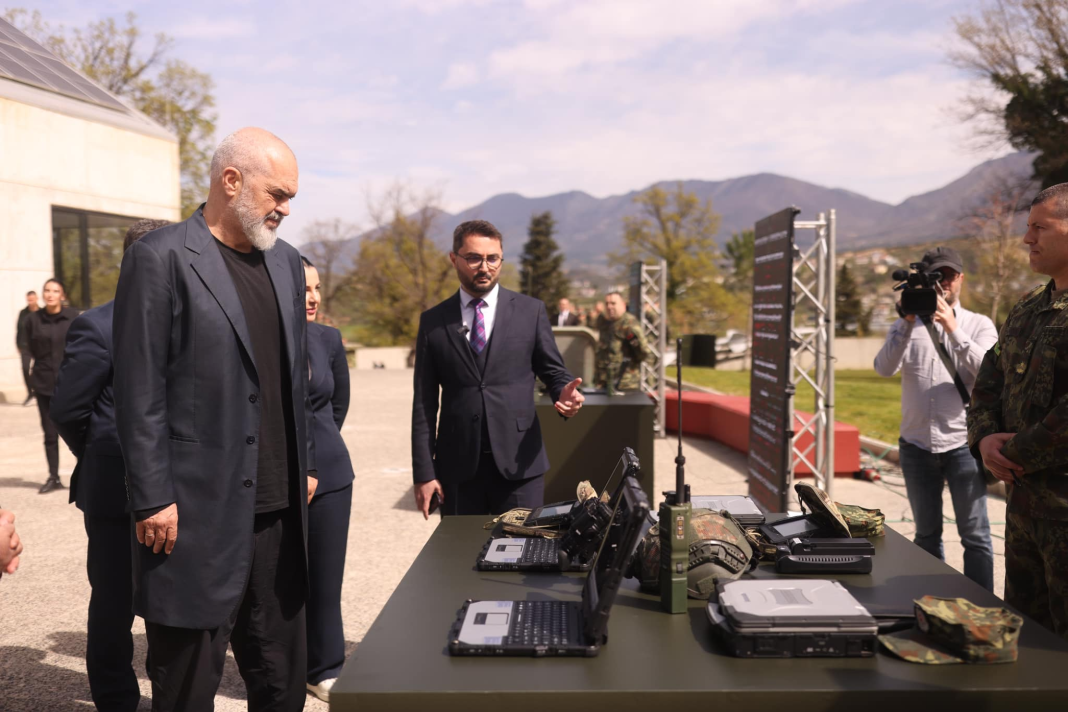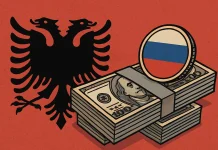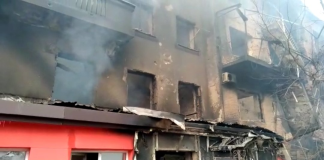By 2030, Albania will not only produce weapons and military equipment but will also export them. This announcement from Prime Minister Rama came shortly after the Western Balkans Summit with Ukraine held in Tirana, where a commitment was made to support Kyiv in its fight against Russian aggression. The Prime Minister aims to revitalize the military industry while also aiding Ukraine. Experts believe this initiative is appropriate, as Serbia and other Western Balkan countries have long been producing and exporting military goods.
Eno Luarasi
‘Our goal is that by 2030, we will be exporting military equipment with the ‘Made in Albania’ label. At the same time, our army will begin to be equipped with military gear that is also ‘Made in Albania.’ – EDI RAMA, PRIME MINISTER OF ALBANIA, 03.04.2024

Immediately following Prime Minister Rama’s announcement at the launch of the Security and Defense Innovation Center, the ministry put forward the draft law ‘On the Creation of the State-Owned Company for the Production and Trade of Weapons, Ammunition, Equipment, and Military Technologies’ for public consultation. This draft law aims to serve as the founding act for the company KAYO sh.a
WHAT THE DRAFT LAW AIMS TO ACHIEVE
Faktoje.al reports that the Ministry of Defense highlights how the changing global security landscape and increased demand for ammunition and military equipment have prompted NATO leaders to support the Defense Production Action Plan during the Vilnius 2023 summit.
MINISTRY OF DEFENSE
‘Like all allied nations, Albania must enhance its operational capacities and increase its reserves of ammunition and armaments to respond to the evolving security situation and support the execution of deterrence and defense plans within the Euro-Atlantic region. To address this necessity, it is crucial to develop a comprehensive assessment of the potential for revitalizing the defense industry. This would not only boost defensive capabilities and contribute to national economic growth but also serve as a tool to further enhance Albania’s image and role on the international stage.’ – Redion Qirjazi, Security Issues Expert

For security expert Redion Qirjazi, who has served for many years in the Armed Forces of the Republic of Albania, the reactivation of the defense industry is feasible but requires a robust legal foundation.
This project is overdue for Albania. The draft law presented appears to be an initial version that still needs substantial improvements. It currently lacks clarity and seems to be missing several essential components, particularly regarding the company’s obligations to the state and coordination with other institutions,’ he explains.
Denis Deliu, a deputy from the Socialist Party, member of the Security Commission, and former Special Forces operative, views the revitalization of the defense industry not only as a feasible opportunity but also as a delayed necessity. Deliu emphasizes that Albania has experience and a tradition in manufacturing weapons and ammunition.

‘We’re behind schedule, but better late than never. The political will combined with the growing demand for armaments and ammunition highlights the necessity to revitalize this industry. It could serve both to meet our own armament and ammunition needs and to position Albania as a low-cost exporter. A strategic investment in equipment and long-term marketing, along with developing and patenting Albanian-made products, could ensure success in the international market.
‘Former Secretary-General of the Ministry of Defense Edvin Kulluri acknowledges that while any increase in military capacity is beneficial, it will be a complex challenge.

‘Revitalizing the armament industry enhances military capabilities and self-sufficiency for the Armed Forces. The export would be an even better news. Certainly, in terms of deterrence (content) against countries with unfriendly ambitions in the region, this would be a factor that strengthens the capabilities of the Albanian Armed Forces. However, we need to acknowledge that there are significant demands across various systems that require both rapid action and substantial investments. “Therefore, don’t expect any big thing from the revival of the military industry. It’s a positive development, but not as groundbreaking as some might believe.’
The draft law envisions that by establishing a structure like KAYO as a commercial enterprise with all necessary capabilities, it will enable the activation and functioning of the mechanisms needed to rejuvenate the inherited military industry capacities.
Serbia undoubtedly has the largest arms industry in the Western Balkans, and compared to it, Albania is significantly behind. The Serbian industry is capable of producing advanced military equipment, including tanks and drones. In 2021, Serbia had approximately 371 licensed companies for the export of weapons and other military equipment, with a total value of $1.23 billion. This was a 20% increase in the number of licenses issued compared to 2020. The main export destinations for Serbian military products included the United States, Bosnia and Herzegovina, Bulgaria, the Czech Republic, Israel, Cyprus, North Macedonia, Turkey, Poland, Montenegro, and Romania. In terms of monetary value, the United States was the leading export destination, accounting for $634.19 million, or 52% of the total exports.










